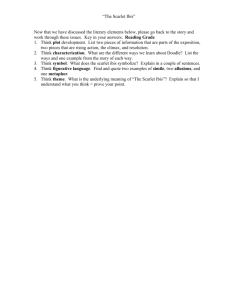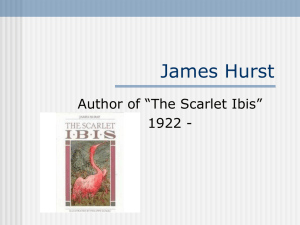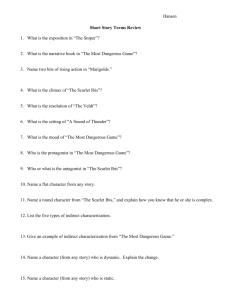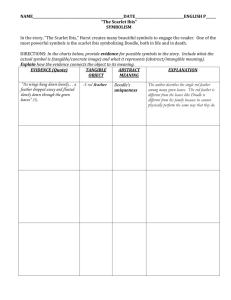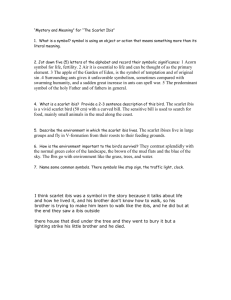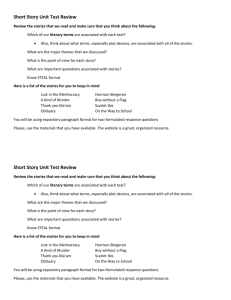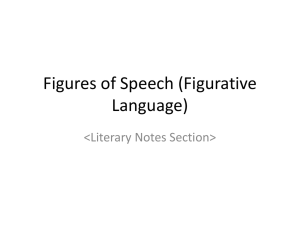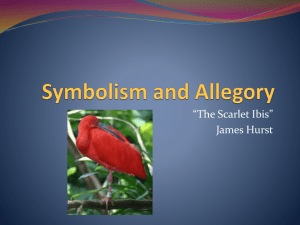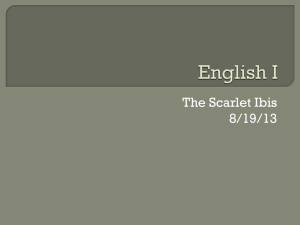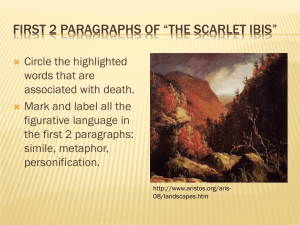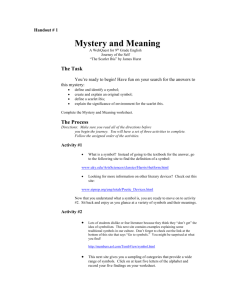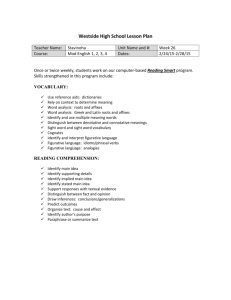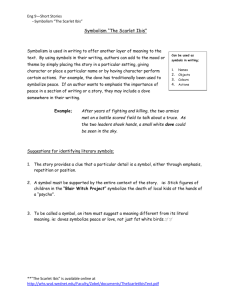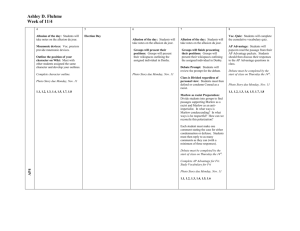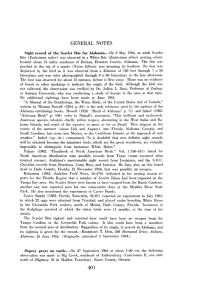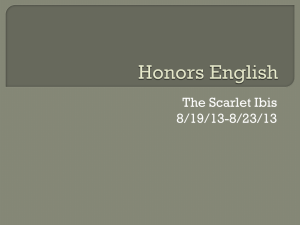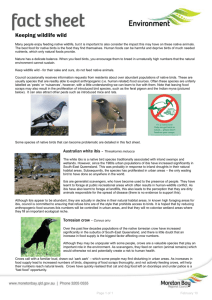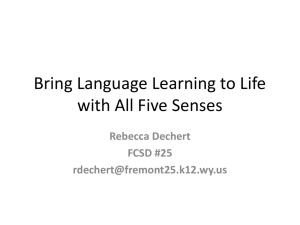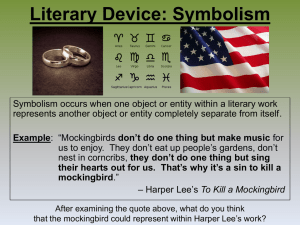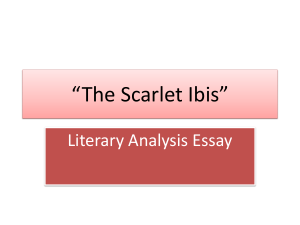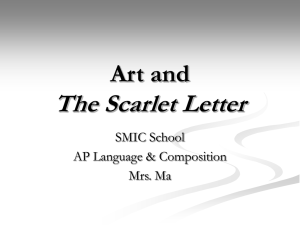Imagery and The Scarlet Ibis PPT
advertisement
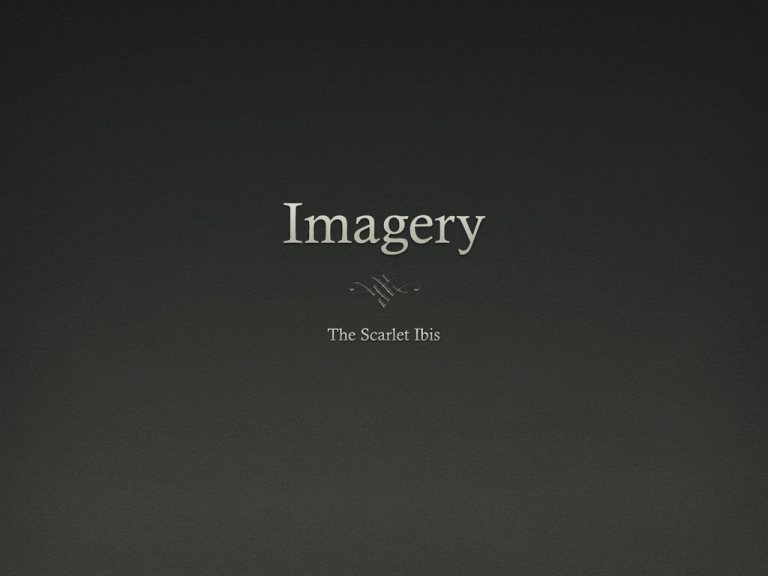
IMAGERY Consists of words and phrases that recreate sensory experiences for readers. 5 SENSES Rather than describing every aspect of a setting, a writer may use sensory details – words and phrases that appeal to the senses of sight, hearing, smell, taste, and touch – to help you visualize a scene. Quick Write Using your five senses, list the items you could hear, touch, smell, taste and see in this scene. It is fine to imagine what you would taste or smell in this scene. http://www.youtube.com/watch?v=eKFTSSKCzWA IMAGERY Imagery can invoke an emotional, sensational (5 senses) or physical response. How did the scene of the bridge make you feel? Pick out the images or sensory details. It was in the clove of seasons, summer was dead but autumn had not yet been born, that the ibis lit in the bleeding tree. The flower garden was stained with rotting brown magnolia petals and ironweeds grew rank amid the purple phlox. The five o'clocks by the chimney still marked time, but the oriole nest in the elm was untenanted and rocked back and forth like an empty cradle. The last graveyard flowers were blooming, and their smell drifted across the cotton field and through every room of our house, speaking softly the names of our dead. The Scarlet Ibis Background Author James Hurst Publication published in the July 1960 Influence "The Scarlet Ibis" was the first and only work of Hurst's to achieve widespread success. The Scarlet Ibis Background, Con’t: The Bird Itself Native of the South American tropics The scarlet ibis is vivid red, but loses its color if it doesn’t eat the proper diet It needs a particular habitat in order to thrive The scarlet ibis is an endangered species which has not bred successfully in its natural habitat since the 1960s.
